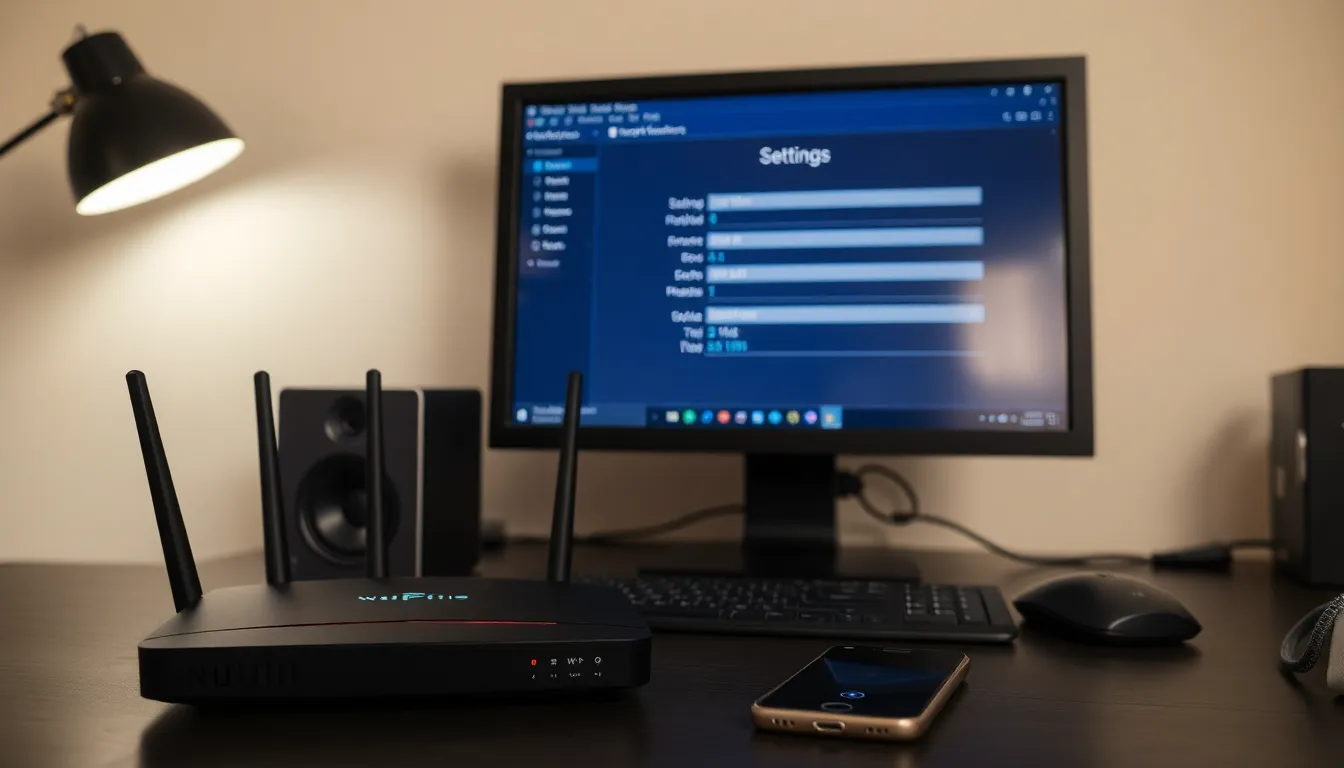Table of Contents
ToggleIn the vast digital universe, every device needs a home, and for many, that cozy abode is found at 192.168.29.01. This little IP address might not have the charm of a five-star hotel, but it’s where the magic happens in your network. Whether you’re a tech whiz or someone who still thinks “the cloud” is just a fluffy thing in the sky, understanding this address is key to navigating your home network like a pro.
Overview of 192.168.29.01
192.168.29.01 represents an IPv4 address used primarily in private networks. Devices within a home network commonly use this address to communicate effectively. Network routers frequently assign it to devices such as computers, smartphones, and printers.
This IP address falls within the private IP address range specified by the Internet Assigned Numbers Authority (IANA). Commonly, devices utilizing addresses in this range include those in homes and small businesses. Users benefit from this address as it allows seamless communication without needing a public IP.
Management of network settings often involves accessing the router interface. Entering 192.168.29.01 into a web browser typically opens the router’s login page. From there, users can configure various settings, such as Wi-Fi names, passwords, and security features. Understanding how to access this interface empowers users to fine-tune their network preferences.
Security plays a vital role in managing networks with this address. Ensuring strong passwords and enabling encryption helps protect devices from unauthorized access. Regular updates to router firmware enhance security measures and overall network performance.
Knowledge of 192.168.29.01 ensures better home network management. This IP address facilitates interaction among devices and provides a gateway for configuring crucial network settings. Understanding its function and applications leads to more efficient and secure home networking experiences.
Common Uses of 192.168.29.01

The IP address 192.168.29.01 serves various important functions in home networking, facilitating efficient device communication and management tasks.
Default Gateway Configuration
Users often configure 192.168.29.01 as the default gateway, allowing devices to communicate with each other and access the internet. This setup simplifies network routing, ensuring that data packets reach their intended destinations. Network devices route traffic through this address, optimizing connectivity among smartphones, computers, and printers. Adjustments, such as setting up static IP addresses for devices, enhance management capabilities. Effective gateway configuration aids in maintaining a structured network environment. Properly managing the default gateway contributes to reliable communications and an overall stable network.
Network Device Management
Managing network devices becomes straightforward when using 192.168.29.01. This address allows users to access the router’s admin panel, where various settings can be modified. Configuration options include adjusting Wi-Fi configurations, updating firmware, and enhancing security features. Accessing this interface empowers users to control network parameters effectively. Regular management of devices connected through this IP can prevent connectivity issues and ensure optimal performance. Utilizing 192.168.29.01 fosters a more organized and secure home networking environment, supporting everyday digital interactions.
Troubleshooting 192.168.29.01 Issues
When issues arise with the IP address 192.168.29.01, several key areas can contribute to troubleshooting efforts. Monitoring network connections becomes essential for ensuring connectivity.
Connection Problems
Connection problems often stem from improper configurations or hardware issues. Devices may fail to connect due to incorrect wireless settings or interference from other devices, like microwaves or cordless phones. Restarting the router can often resolve temporary glitches. Verifying the device connection status also proves beneficial. Checking cables and ensuring they aren’t damaged helps rule out physical issues. Furthermore, resetting network settings on problematic devices might restore connectivity.
Access Denied Errors
Access denied errors typically occur during attempts to reach the router’s admin interface. Incorrect login credentials often cause these errors; confirming the username and password associated with the router is crucial. If credentials are forgotten, performing a factory reset might restore default settings. Additionally, ensuring the device is connected to the network can eliminate basic connectivity issues. Browsers may cache old login information, so clearing the cache or trying a different browser can also help bypass these errors.
Security Measures for 192.168.29.01
Maintaining security for the IP address 192.168.29.01 is vital for protecting the home network. Users should employ strong passwords that combine letters, numbers, and symbols. This practice significantly reduces the risk of unauthorized access.
Encryption settings play a crucial role in safeguarding data. WPA3 offers enhanced security compared to its predecessors, making it an optimal choice for users. Regularly updating the router’s firmware is essential for patching vulnerabilities and improving performance.
Monitoring network traffic can help in identifying suspicious activity. Tools like intrusion detection systems enhance overall security. Users benefit from setting up alerts for unusual logins or access attempts.
Configuring a guest network is another effective strategy. A separate network for visitors limits their access to personal devices and sensitive information. Guests can use the internet without compromising the main network’s security.
Implementing MAC address filtering adds another layer of protection. By allowing only specific devices to connect, network owners can prevent unauthorized access. This measure requires users to maintain an up-to-date list of authorized MAC addresses.
Regular audits of connected devices enhance security measures. Identifying unknown devices can reveal potential security breaches. Users effectively manage device access with periodic reviews.
Educating users about phishing attacks and malware is crucial. Awareness of these threats can significantly enhance overall network security. Proper training ensures that all individuals connected to the network adhere to best practices.
Ultimately, adopting these security measures for 192.168.29.01 leads to a more secure and reliable home network. Emphasizing ongoing vigilance and regular updates fosters a safe environment for all network-connected devices.
The IP address 192.168.29.01 plays a vital role in home networking by ensuring effective communication among devices. Its significance extends beyond mere connectivity; it allows users to manage their network settings with ease. By understanding how to navigate this address, users can enhance their network’s security and performance.
Adopting strong security practices is essential for safeguarding the network from unauthorized access. Regular updates and proper configurations can lead to a more reliable and efficient home network. Ultimately, mastering the use of 192.168.29.01 empowers users to create a secure environment for their connected devices, fostering a seamless networking experience.



